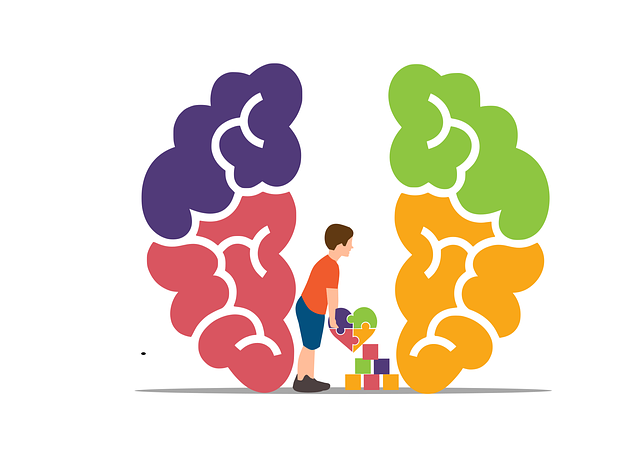Crisis intervention plays a vital role in addressing severe challenges like drug abuse in Arvada, focusing on immediate assistance and stabilization. Evidence-based practices, including cognitive-behavioral therapy (CBT) and motivational interviewing (MI), guide professionals through complex emotional scenarios, fostering positive outcomes. Specialized Arvada Drug Abuse-Substance Abuse Therapy programs integrate physical and psychological healing, teaching individuals skills for long-term sobriety and overall mental health improvement. Holistic approaches like Mental Wellness Coaching and Stress Management enhance resilience, empowering individuals to better cope with future challenges.
“In times of crisis, effective intervention strategies can make a profound difference. This article explores essential guidelines for navigating intense situations with empathy and professionalism. We delve into the fundamentals of crisis intervention, highlighting its significance in various settings.
A key focus is the unique approach of Arvada Drug Abuse-Substance Use Therapy, catering to specific needs within the crisis realm. Furthermore, it examines evidence-based practices that have proven vital in crisis intervention, offering a comprehensive resource for professionals aiming to enhance their skills.”
- Understanding Crisis Intervention: A Foundation for Effective Strategies
- Arvada Drug Abuse-Substance Use Therapy: Targeting Specific Needs
- Implementing Evidence-Based Practices in Crisis Intervention Settings
Understanding Crisis Intervention: A Foundation for Effective Strategies

Understanding crisis intervention is a fundamental step in developing effective strategies to support individuals facing severe challenges, particularly those suffering from Arvada drug abuse-substance abuse therapy needs. Crisis interventions are designed to provide immediate assistance and stabilize the situation, focusing on safety and well-being. By employing evidence-based practices, professionals can navigate complex emotional landscapes and foster positive outcomes.
Empathy building strategies and compassion cultivation practices play a pivotal role in effective crisis intervention. These involve actively listening, understanding, and validating the individual’s emotions without judgment. Through such approaches, individuals feel heard, respected, and supported, laying the groundwork for more comprehensive emotional healing processes. This initial step can significantly impact their willingness to engage in further therapy and recovery efforts.
Arvada Drug Abuse-Substance Use Therapy: Targeting Specific Needs

Arvada Drug Abuse-Substance Use Therapy programs are designed to address specific needs related to drug abuse and addiction. These tailored interventions focus on providing individuals with the tools and resources necessary for recovery, emphasizing both physical and psychological aspects of healing. By implementing evidence-based practices, therapists facilitate a comprehensive approach that targets not only the addiction itself but also underlying factors contributing to substance use disorders.
Incorporating Emotional Well-being Promotion Techniques and Mental Wellness Coaching Programs Development is integral to the process. These strategies help individuals manage cravings, cope with triggers, and improve mood regulation through various therapeutic techniques. By integrating emotional support and mental wellness coaching into Arvada Drug Abuse-Substance Use Therapy, participants gain valuable skills for maintaining long-term sobriety while promoting overall mental health and resilience.
Implementing Evidence-Based Practices in Crisis Intervention Settings

In crisis intervention settings, implementing evidence-based practices is paramount for effective support. Research has proven that strategies such as cognitive-behavioral therapy (CBT) and motivational interviewing (MI) significantly enhance outcomes in managing severe mental health crises, including substance use disorders like Arvada Drug Abuse-Substance Abuse Therapy. These approaches are grounded in scientific research, ensuring that interventions are tailored to meet the unique needs of individuals experiencing a crisis.
By integrating evidence-based practices, such as Mental Wellness Coaching Programs Development and Stress Management techniques, professionals can foster a more comprehensive approach to crisis intervention. This not only includes addressing the immediate crisis but also focusing on building resilience and promoting long-term mental wellness. Such an holistic strategy boosts confidence and empowers individuals to manage future challenges, ensuring better coping mechanisms and improved quality of life.
Crisis intervention strategies are a vital tool for professionals navigating the complexities of substance abuse and mental health crises. By understanding the foundational principles and implementing evidence-based practices, such as those seen in Arvada Drug Abuse-Substance Use Therapy programs, we can provide effective support to those in need. These strategies ensure that interventions are tailored to specific individual requirements, fostering a more successful outcome. With a commitment to continuing education and staying abreast of the latest research, professionals can enhance their ability to assist individuals during crises, ultimately promoting better long-term outcomes.














